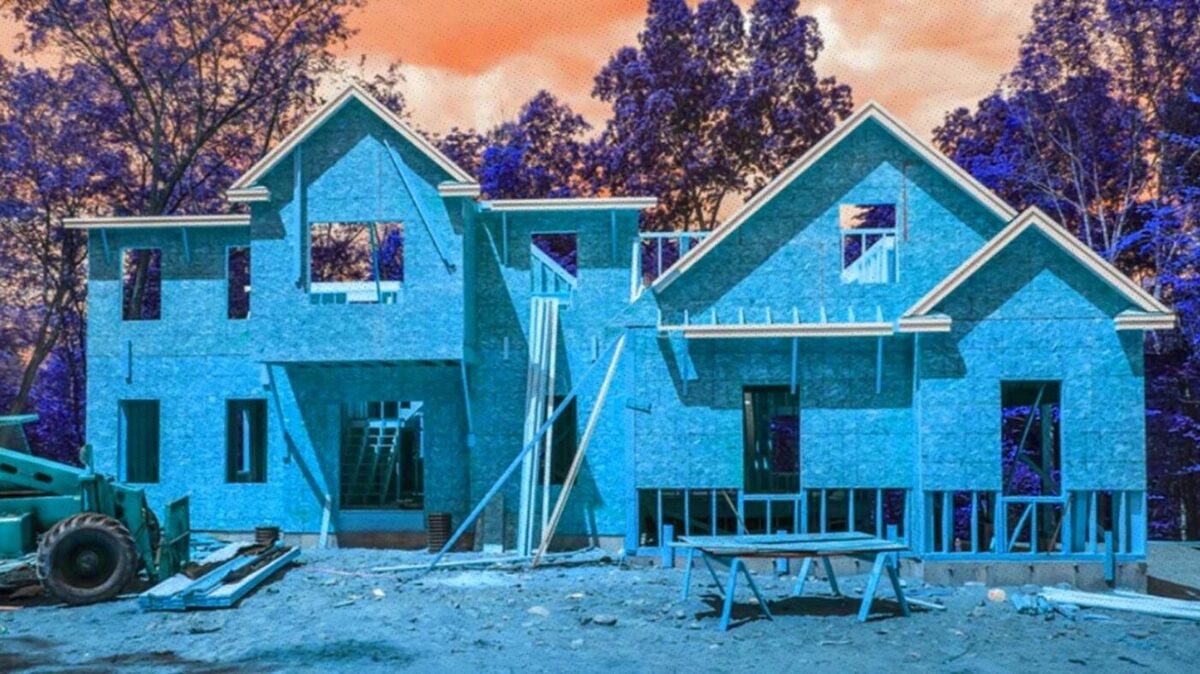Record increase in Fannie, Freddie loan limits sparks debate
Rapid home price appreciation during the pandemic means loan limits for Fannie Mae and Freddie Mac will make a record-breaking leap in 2022, fueling a debate over housing affordability and competition in the mortgage industry.
The 2022 conforming loan limit for Fannie and Freddie will be $647,200 in most of the country, and close to $1 million in 100 counties concentrated in nine metro areas, the Federal Housing Finance Agency announced today.
The 18 percent increase in the conforming loan limit is the largest in records dating to 1970, breaking the old record of 15.9 percent seen in 2006 on the eve of the 2007-09 housing bust and recession.
In raw dollar terms, the $98,950 increase for 2022 also far exceeds the $57,350 increase registered in 2006.
The increase in the conforming loan limit will mean lower interest rates for some borrowers who would otherwise have to turn to “jumbo” mortgages that aren’t eligible for purchase or guarantee by Fannie and Freddie.
But critics say higher limits could also contribute to runaway home price appreciation that’s priced many homebuyers out of the market.
FHFA Acting Director Sandra Thompson acknowledged those concerns in a statement, saying that the agency “is actively evaluating the relationship between house price growth and conforming loan limits, particularly as they relate to creating affordable and sustainable homeownership opportunities across all communities.”
Under a formula mandated by Congress, the conforming loan limit is tied to annual increases in FHFA’s seasonally adjusted, expanded-data House Price Index. That index, also released today, showed home prices posted 18.5 percent annual gains during the third quarter.
Many lenders, including Rocket Mortgage, PennyMac and United Wholesale Mortgage, had already begun pricing loans of up to $625,000 as “conforming,” in anticipation that a large increase was inevitable.
The Housing Policy Council, a trade association representing mortgage lenders and servicers, said the higher loan limits for Fannie and Freddie also make it harder for private lenders who make loans that aren’t guaranteed by Fannie and Freddie to compete.
“Since Fannie Mae and Freddie Mac were placed into conservatorships 13 years ago, taxpayer support for the mortgage market has increased significantly,” the group said. “Home price appreciation has facilitated this expansion, permitting Fannie Mae and Freddie Mac to serve a portion of the market traditionally covered by private capital. Meanwhile, with house prices rising faster than incomes, affordability continues to be a problem for many homebuyers.”
In higher-cost markets, Fannie and Freddie are allowed to purchase bigger mortgages based on a multiple of the median home value, up to a ceiling that’s equal to 150 percent of the baseline conforming loan limit. For 2022, the new new ceiling loan limit for one-unit properties in high cost areas will be $970,800.
By statute, Alaska, Hawaii, Guam, and the U.S. Virgin Islands will have baseline loan limits of $970,800 for one-unit properties.
Historically, most of the loans backed by Fannie and Freddie are considerably below the upper limits, even when they go up.
An FHFA analysis of 4.12 million loans acquired by Fannie and Freddie in 2019 shows that when the conforming loan limit was increased by $31,250, only 141,600 loans — 3.4 percent of the total — were higher than the old 2018 limit.
However, borrowers taking out newly eligible loans in 2019 made almost twice as much — $182,000 — as borrowers taking out loans within the 2018 limit, and were less likely to be Black or Hispanic and more likely to be Asian or white.
Once the conforming loan limit goes up, it doesn’t come back down — although there’s been considerable debate over whether it should rise and fall with home prices. After the 2007-09 housing bust and recession, the 2006 conforming loan limit of $417,000 remained in place for a decade.
“Given the recent rapid appreciation in home prices, it is no surprise that the 2022 maximum conforming loan limit has increased substantially,” the Housing Policy Council said. “Yet, the stark reality of a loan limit approaching $1 million in some areas highlights the need for Congress and the Administration to evaluate the level of support taxpayers should provide to the mortgage market.”
The 2022 conforming loan limit for Fannie and Freddie will be $647,200 in most of the country, and close to $1 million in 100 counties concentrated in nine metro areas, the Federal Housing Finance Agency announced today.
The 18 percent increase in the conforming loan limit is the largest in records dating to 1970, breaking the old record of 15.9 percent seen in 2006 on the eve of the 2007-09 housing bust and recession.
In raw dollar terms, the $98,950 increase for 2022 also far exceeds the $57,350 increase registered in 2006.
The increase in the conforming loan limit will mean lower interest rates for some borrowers who would otherwise have to turn to “jumbo” mortgages that aren’t eligible for purchase or guarantee by Fannie and Freddie.
But critics say higher limits could also contribute to runaway home price appreciation that’s priced many homebuyers out of the market.
FHFA Acting Director Sandra Thompson acknowledged those concerns in a statement, saying that the agency “is actively evaluating the relationship between house price growth and conforming loan limits, particularly as they relate to creating affordable and sustainable homeownership opportunities across all communities.”
Under a formula mandated by Congress, the conforming loan limit is tied to annual increases in FHFA’s seasonally adjusted, expanded-data House Price Index. That index, also released today, showed home prices posted 18.5 percent annual gains during the third quarter.
Many lenders, including Rocket Mortgage, PennyMac and United Wholesale Mortgage, had already begun pricing loans of up to $625,000 as “conforming,” in anticipation that a large increase was inevitable.
The Housing Policy Council, a trade association representing mortgage lenders and servicers, said the higher loan limits for Fannie and Freddie also make it harder for private lenders who make loans that aren’t guaranteed by Fannie and Freddie to compete.
“Since Fannie Mae and Freddie Mac were placed into conservatorships 13 years ago, taxpayer support for the mortgage market has increased significantly,” the group said. “Home price appreciation has facilitated this expansion, permitting Fannie Mae and Freddie Mac to serve a portion of the market traditionally covered by private capital. Meanwhile, with house prices rising faster than incomes, affordability continues to be a problem for many homebuyers.”
In higher-cost markets, Fannie and Freddie are allowed to purchase bigger mortgages based on a multiple of the median home value, up to a ceiling that’s equal to 150 percent of the baseline conforming loan limit. For 2022, the new new ceiling loan limit for one-unit properties in high cost areas will be $970,800.
By statute, Alaska, Hawaii, Guam, and the U.S. Virgin Islands will have baseline loan limits of $970,800 for one-unit properties.
Historically, most of the loans backed by Fannie and Freddie are considerably below the upper limits, even when they go up.
An FHFA analysis of 4.12 million loans acquired by Fannie and Freddie in 2019 shows that when the conforming loan limit was increased by $31,250, only 141,600 loans — 3.4 percent of the total — were higher than the old 2018 limit.
However, borrowers taking out newly eligible loans in 2019 made almost twice as much — $182,000 — as borrowers taking out loans within the 2018 limit, and were less likely to be Black or Hispanic and more likely to be Asian or white.
Once the conforming loan limit goes up, it doesn’t come back down — although there’s been considerable debate over whether it should rise and fall with home prices. After the 2007-09 housing bust and recession, the 2006 conforming loan limit of $417,000 remained in place for a decade.
“Given the recent rapid appreciation in home prices, it is no surprise that the 2022 maximum conforming loan limit has increased substantially,” the Housing Policy Council said. “Yet, the stark reality of a loan limit approaching $1 million in some areas highlights the need for Congress and the Administration to evaluate the level of support taxpayers should provide to the mortgage market.”


 Menu
Menu




